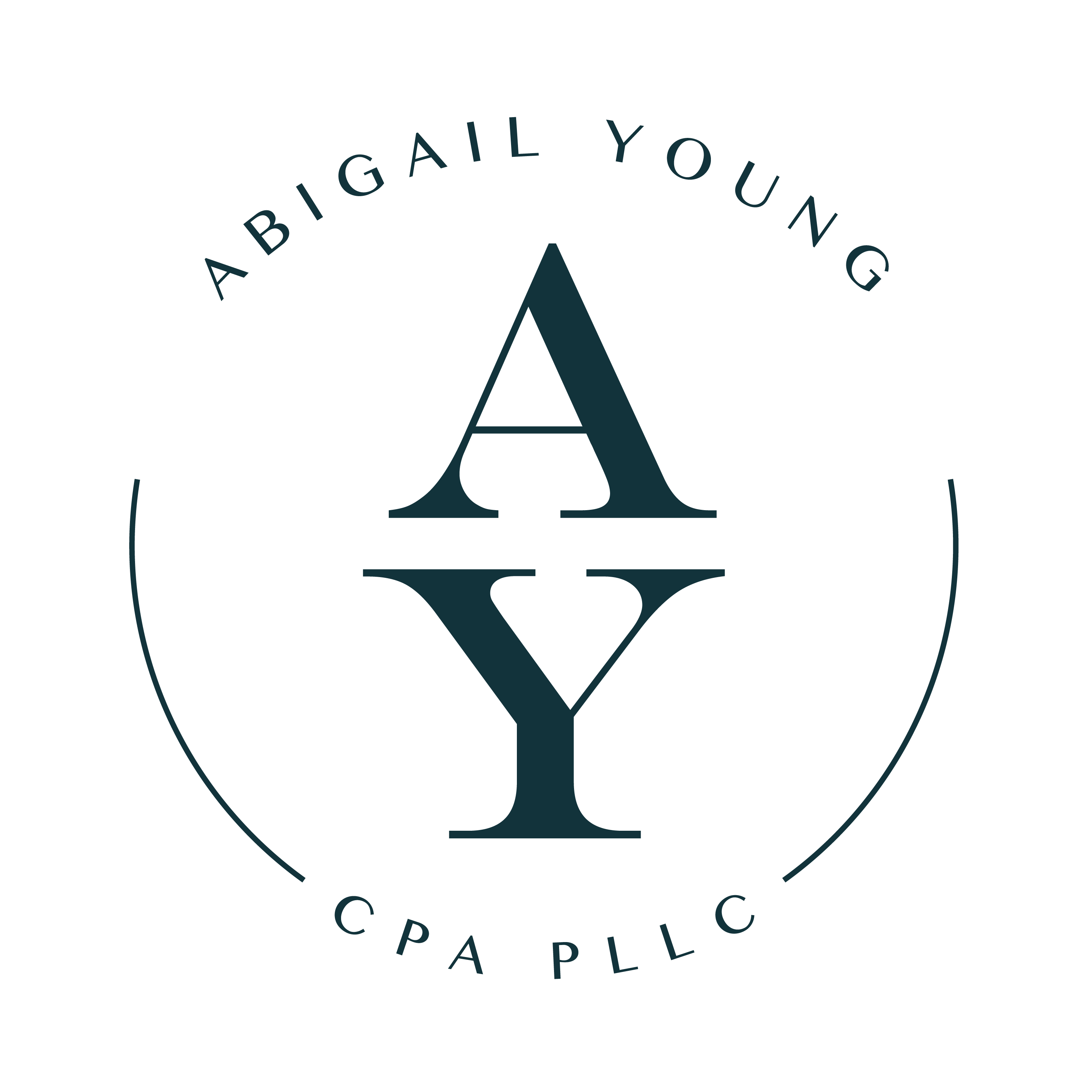‘Tis The Season of Tax Saving Tips: 14 & of Year Tips That Are Sure To Bring Joy
As of the time of this writing, the Republican tax plan has not been signed into law. The proposal has plenty of interesting provisions, to say the least, but most importantly to taxpayers, this legislation would NOT come into effect until next year (Jan. 1, 2018).
This means (A) there will be no impact on your 2017 tax filings which are due on April 15, 2018, and (B) there are a number of end-of-year tax tips that are still effective under the current tax laws. Your McAllen CPA at Abigail Y. Murray, CPA, LLC. wants to add a little joy to your holiday season by sharing with you 14 tax saving tips for both individuals and small business owners.
Personal Tips
1. Defer income until 2018. If you have the opportunity to defer income, you may want to consider doing so, especially if you think you might fall into a lower tax bracket in the 2018 tax season. A few options might include delaying an end-of-year bonus. This is a good strategy to move some taxable income into the following year.
[bctt tweet=”#AYMCPA #TaxTip: Defer income until #2018 to lower taxable income.” username=””]
2. Increase payments to increase deductions. If you’re making payment on deductible expenses such as school interests or medical expenses, increasing your payments on these deductions can have an effect on your 2017 taxes.
3. Increase withholdings to lower taxes. Does it look like you’ll owe some hefty taxes this year? You can fill out a W-4 and ask your employer to increase your withholdings for the rest of the year to lower down what you owe on your federal income tax. One of the benefits of doing so is that the IRS views withholdings as being paid out evenly throughout the year, which can help you to cover a quarterly tax payment.
4. Contribute the maximum amount allowed on your retirement plan. Contribution to your IRA or employer-sponsored retirement plan can increase your deductibles and lower your taxable income for the year. Try to contribute the maximum amount allowed to reach full benefit.
5. Retirees! Take required retirement plan distributions. Individuals who reach the age of 70 ½ must typically accept required minimum distributions (RMDs) from their retirement plans. Frustratingly enough, failing to do so can lead to a penalty of 50% of the amount that was supposed to be distributed to you.
6. The gift of giving can actually save you. Donating to charities from a taxable account (traditional IRA or 401(k) plan) can lower your tax bill. You should also consider accelerating charitable gifts for the road ahead. The upcoming year could see a reduced value of these deductions.
[bctt tweet=”During the #holiday season #donations are always welcome (and help lower your #tax bill).” username=””]
7. Sell underperforming investments. You can reduce taxes on investments by selling investments, stocks, and bonds that have lost value and generated capital loss. This can potentially help to lower tax liability that you might have on your investments.
Tips For Small Businesses
1. Preparation is key. You’ll need to prepare for the hit to your cash flow by reviewing financial reports with your bookkeeper or accountant. You’ll be able to make the proper adjustments by having an idea of your business’s potential tax bill. This will also open the door to discussing whether or not it makes more sense to pay quarterly estimated taxes rather than carrying that large burden in April.
[bctt tweet=”Let the #McAllen CPAs at #AYMCPA help you prepare for #taxseason #2018 early” username=””]
2. Defer income and increase expenses. Your small business is going to be taxed on its profits. There are a few simple tax tips that you can follow in order to defer revenue and increase expenditures, just make sure that your small business passes through entities reporting business income and falls under a Schedule C personal tax return. You can contact the McAllen CPA of Abigail Y. Murray, CPA, LLC. if you aren’t sure.
- Defer income by depositing less money into your business bank account during these last few months of the year (assuming you can handle the cash flow), send out invoices for the month of December late in the month, and defer customer payments until January 2018 if possible.
- Now comes the easy part – spending money. Assuming that cash flow will not hurt your business for the next couple of months, pay as many business-related bills as possible, consider making some necessary upgrades to equipment (or brand new purchases), purchase offices supplies in bulk that you know are necessary all year round, and contribute to charity.
3. Bosses deserve retirement savings plans too. In the process of running a small business, you might be overly concerned with meeting the needs of your employees and their retirement savings plans. While this is an awesome approach to business ownership, it doesn’t hurt to start contributing to your own retirement plan as well. Whether you are opening a Simple IRA, 401(k), or profit-sharing plan, the contributions you make for your employees and yourself are generally tax-deductible. Make sure that you establish the plan before the end of the year to get the deductions for 2017.
4. Take advantage of startup costs. If you’re a startup business, you may be able to deduct up to $5K in startup costs and an additional $5K in organizational costs. These deductions can be applied to a number of expenses including advertising, employee training and wages, legal and accounting fees, and more. Be aware that these deductions no longer apply after you’ve hit $50K in expenses or organization costs. More than $55K and no deductions will be allowed.
5. Don’t forget to make a charitable contribution. If you’re looking for a tax deduction, donating to a charity, sponsoring at a charitable event, or donating inventory are all generally beneficial to your business.
6. Don’t forget about home, auto, and lunch deductions. As a small business owner, there are a number of deductions that you may be eligible for if you work out of a home office including mortgage interest, insurance, utilities, maintenance, and other items. You can find instructions and IRS Form 8829 here.
Alongside home office deductions, you can also deduct car expenses if you use it for your small business. The IRS allows you to claim standard mileage rate and actual car expenses that include gas, oil, tires, repairs, insurance, registration fees, and more.
Last, but certainly not least, are business-related lunches. As per the IRS, generally, only 50% of business-related meal and entertainment expenses are allowed as a deduction. Still, this can be a meaningful deduction for your business if you find yourself constantly having lunch or dinner meetings with clients.
7. Use a tax professional to get the most deductions and benefits. You may be tempted to handle your taxes alone or to utilize a simple tax service. But you should really consider having your taxes prepared by a tax professional like a CPA, who has the training, experience, and industry know-how to really delve into those taxes and find you the best deductions for your needs. The savings you’ll receive will definitely offset the costs and you can find comfort in knowing that everything was properly filed.
For more tax tips and financial guidance, call up the professionals at Abigail Y. Murray CPA for the support you need and tax expertise you deserve.
Wrap up the tax year on the right note and save yourself some money for when tax season comes around in a few months. And don’t forget to call on the knowledgeable and experienced experts at Abigail Y. Murray CPA in McAllen for the support you need.
Contact our McAllen CPA today at (956) 800-5600 to start making plans for the upcoming year.


